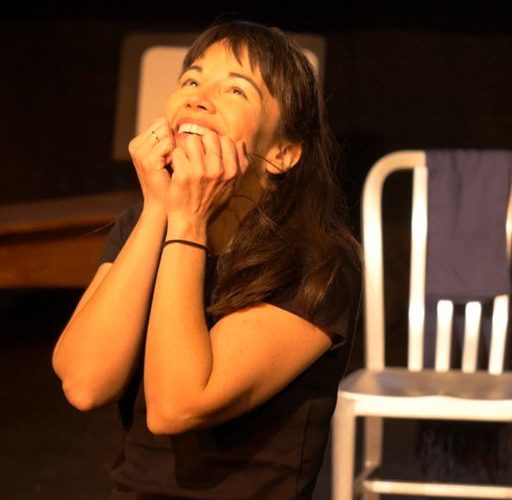By Zoe Krueger Weisel
When it comes to the third culture kid’s personal characteristics developed via his or her unique childhood, there are aspects which can be seen as advantages and challenges simultaneously. One such aspect is adaptability as opposed to a lack of true cultural balance, which has led to the coinage of the term “cultural chameleon” (Pollock et al. 2017).
This can be related to sociologist Erving Goffman’s dramaturgical theory (1996), where life can be compared to a “play” one must engage in by taking on a certain role, depending on who one’s counterpart is at any given moment. An important part of socialization is learning how to behave in certain situations or, to put it in terms TCKs know well, becoming a cultural chameleon. To avoid standing out and being different in their host cultures, TCKs quickly learn to adapt to new cultures by learning their languages or by changing their appearance and cultural practices, for example. According to Goffman, this adaptation process can be referred to as “impression management.” TCKs do this to better blend in with their new environments so they are not seen as outsiders. This character trait does not just help them survive the struggles of their daily interactions in new places but can also be very useful and beneficial to their later lives as they can easily adjust to new schedules and changing circumstances and switch between cultures as quickly as necessary (Pollock et al.). Research has even suggested that TCKs themselves “describe their capacity to adjust as cultural understanding, attitudinal robustness and a belief or self confidence that they will be successful on future international assignments” (Westropp et al. 2016).

However, this skill of quickly being able to adapt to new cultural environments can also lead to
the challenge of not experiencing a sense of true cultural balance. While they may externally
appear to fit in with the crowd and culture surrounding them, the individual may internally be going through a challenging process of trying to understand the new culture, always wondering if they are giving a convincing performance within their life’s play or not.
Additionally, TCKs may “have trouble figuring out their own value system from the multicultural mix they have been exposed to” (Pollock et al.). This means that it may be hard for them to differentiate their own set of morals and convictions from those of the “hive mind mentality” of the culture they are in currently. This may also lead to a sort of identity crisis within TCKs, since they may not know what to believe or who they are, apart from their current cultural identity (Pollock et al.).
Being TCK chameleons may not just present an internal struggle but also may attract skepticism from people surrounding them. Since others could observe them while they are switching cultural practices from one moment to the next, TCKs may come across as untrustworthy. TCKs might struggle to control their manner of interacting and the image they are emanating, which can clash with their idea of impression management. This can make it difficult for them to convince people of their authenticity, since they may tend not to be completely familiar with their current culture in a way that seems natural to observers. Since TCKs are seemingly characteristically unpredictable, it could be hard for people with more culturally conventional backgrounds to understand how their upbringing may have influenced their behavior in this regard.
Due to their status as cultural chameleons, however, TCKs may develop the characteristic of an expanded worldview. Because of their internationally mobile upbringing “[t]he TCK’s awareness that there can be more than one way to look at the same thing starts early in life” (Pollock et al.). They experience cultural differences around the world firsthand while also being able to observe people viewing life from many different perspectives philosophically, politically, and socially (ibid.).

However, this wide range of perspectives can also lead to TCKs developing confused loyalties regarding “such complex things as politics, patriotism, and values” (ibid.). They could, for example, not know which country to be supportive of during world sports, be conflicted when supporting their home country’s policies if they might harm their host country, or maybe not know how to react when friends talk badly about the other country they feel loyal to in one way or another (ibid.).
Furthermore, it can be argued that TCKs do not necessarily feel a sense of belonging within a nationality or place but rather by having “a community, an ‘interstitial culture’ to which they belong” (ibid.). Research has indicated that their “sense of belonging [is] three times stronger to relationships than to a particular country” (Fail et al. 2004). Since they may not have a “sense of home” in the classical definition of the term, they often find other ways to determine their belonging independent from geographical borders (Pollock et al.; Westropp et al.).
TCKs are also said to identify more often with their school surroundings than with their parental home environment while growing up (Fail et al.). The reason for this may be that they are often sent to boarding schools (Pollock et al.), where they spend most of their upbringing, but also due to the fact that the school and the educational environment in general represent the Third Culture for many. It seems to be the case that no matter what approach one takes analyzing third culture kids, it always leads back to them feeling most comfortable within the Third Culture itself, creating their cultural identity through shared experiences with other TCKs and a mixture of both their home and host countries.
One great challenge that can arise from TCKs regarding their sense of belonging and home in relationships and school environments (representing the Third Culture instead of places), is that these factors do not stay static. Relationships change or end, especially those made in international schools, since these are filled with highly mobile TCKs, regularly moving to new places with their families. TCKs are even said to consider regularly losing friends a normal part of life, which can lead to them becoming “cautious about forming relationships” (Gilbert 2008) and “keeping distance between self and others” (Lijadi and Schalkwyk 2014).

Since many TCKs tend to not feel at home within their “external environment” (Pollock et al.), they often struggle to answer the question of where home is. Even though many settle for unconventional ways to describe where they belong, a difficulty of not having a physical place to call home is that they also do not have a place to return to once they leave the Third Culture. They may even “view themselves as cosmopolitan people who feel comfortable in a variety of environments” (Fail et al.), which surely sounds very beneficial at first glance, but at the same time they may “lack a sense of belonging in any one” (ibid.) of these environments. An interesting aspect is also that “[t]he phrase ‘sense of belonging’ shows that there is a link between a sense of belonging and sense of identity” (ibid.), implying that not having a physical place to go home to does not just pose the question of where they belong but also of who they are. “Their experiences appear to have shifted how they construct identity as it relates to home, belonging and place” (Westropp et al.).
Hopefully, the increasing amount and quality of research into TCKs can begin to help them as they try to find their own unique roles in the play of life.
References
Fail, H., Thompson, J., & Walker, G. (2004). Belonging, identity and Third Culture Kids: Life histories of former international school students. Journal of Research in International Education, 3(3), 319–338. https://doi. org/10.1177/1475240904047358
Gilbert, K. R. (2008). Loss and Grief between and Among Cultures: The Experience of Third Culture Kids. Illness, Crisis & Loss, 16(2), 93–109. https://doi.org/10.2190/IL.16.2.a
Goffman, E. (1996). Wir alle spielen Theater: die Selbstdarstellung im Alltag. 5. Aufl. Piper. München. Lijadi, A., & Van Schalkwyk, G. (2014). Narratives of third culture kids: Commitment and reticence in social relationships. The Qualitative Report, 19, 1–18.
Pollock, D. C., Van Reken, R. E., & Pollock M. V. (2017). Third Culture Kids: Growing Up Among Worlds, Third Edition. Nicholas Brealey Publishing. Boston. Westropp, S., Cathro, V., & Everett, A. M. (2016). Adult third culture kids’ suitability as expatriates. Review of International Business and Strategy, 26(3), 334–348. https:// doi.org/10.1108/RIBS-12-2015-0080

Zoe Krueger Weisel is a young German-American Italian researcher based in Italy. She was born and raised in Germany, but has lived in both the US and Italy since starting university. She has always had a particular research interest in the third culture experience due to her own military third culture background. ORCID ID: https://orcid.org/0000-0002-9083-3502 Work profile: https://www.eurac.edu/de/people/zoe krueger-weisel












